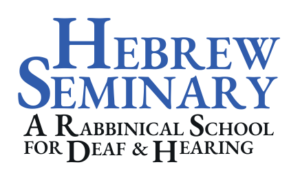By Hebrew Seminary President Rabbi Dr. Douglas Goldhamer
Our Torah portion this week, called Mishpatim, identifies the theory of reincarnation in many of our Judaisms. Our Torah portion begins, “These are the judgments that you shall place before them. “ According to the Kabbalah, and the Divine Rabbi who wrote the ZOHAR , Rabbi Shimon Bar Yochai, this verse means “This is the order of judgments and laws and rewards and punishments, that dictate the reincarnation of souls.” Every individual receives the appropriate GILGUL or incarnation, corresponding to the life he previously led.
When a person is born, he receives the first part of his soul, Nefesh. If he does good deeds and meditations and practices Torah all his life, his Nefesh soul will develop two more parts – Ruach and Neshoma. IF he does indeed receive all these three parts of his soul – Nefesh and Ruach and Neshoma—she does not need to reincarnate.
But he goes back to the world of souls at the time of his death in this world. But if a person does not achieve Nefesh and Ruach and Neshoma, they may need to reincarnate over a number of lifetimes.
Each person goes down to earth several times in different reincarnations, and the purpose of these reincarnations is to correct all the harm and injury that he has created in his lifetimes. And so, sins originate from a person who was born with bad attributes at birth. This does not mean we believe in Original Sin – just the opposite. Each person has the right and responsibility and opportunity to correct the sins of his previous lifetimes and then, when he succeeds in this, he is given the opportunity to go to heaven. That is why souls come down again and again, through reincarnation.
Earth is the school for souls. Each one of us learns how to be a better person through our incarnations or our gilgulim. And just as earth is a school for souls, heaven is the graduation that is offered to each one of us. And many of our Judaisms do believe that we do visit with family members once again after we leave this earth.
Over the years, people have come to me for an exorcism. They feel that their husband or child has been possessed. And, they wonder if I could exorcise the demon from within them. Do we Jewish people do exorcisms, similar to the Catholic priest?
Yes, there is a form of reincarnation which is called a dybbuk. It is referred to as “being possessed.” This means that a person’s soul becomes possessed by another person’s soul or by an evil spirit. This dybbuk is a separate soul that never becomes unified with one’s own soul, and when a person is possessed by this other soul, he feels there is something external to his own life, living in his body. The Torah calls this Ruach Ra’ah, an evil spirit. We see this In the Bible, when the first king of Israel, King Saul was suffering from great depression, and the Torah says, “A spirit of the Lord which is evil troubled King Saul.” In the Bible, this phenomenon was called Ruach Ra’ah, a Demon. But in later years, in the 18th century onwards, this was called a dybbuk.
Once upon a time, there lived two friends—both wives became pregnant. “I promise, if your wife has a boy and my wife has a girl, they will marry.”
Later on, one of the friends and his wife, went on a business trip out of town. There was an accident on the road, and the husband was killed. The wife, subsequently gave birth to a boy, and moved to another town. The other wife gave birth to a beautiful girl.
But the vow was forgotten.
The boy grew up and he came to study in the college of the same town as the girl. HE even stayed as a guest in the home of that girl. He didn’t know it. The boy and girl fell in love.
The girl’s stepfather—who didn’t know about the vow that had been made—said, “You are not rich. You cannot marry my stepdaughter.”
But the girl loved the young man. AND he loved her. But the boy understood that they could not marry. And with a broken heart, the boy died.
The girl’s parents found a rich suitor and arranged for their marriage. Before the wedding, the girl visited the boy’s grave and begged his soul to break through from the worlds above and come to her wedding.
As the girl cried at his grave, the soul of the boy entered her body as a dybbuk. She began acting like him, speaking like him. The rabbis tried to do an exorcism but failed.
In the end, the girl died, in love with the soul of her beloved boyfriend.
This type of experience occupies a place in Jewish literature, because it reflects the spiritual history of our people. Reincarnation, exorcism, dybbuks have played a part in Jewish spiritual history.
I do believe that we experience reincarnation. I am sure that some of you have experienced déjà vu. Déjà vu is so real, and at times so powerful that, while having this experience, we think “I know this man. I’ve met him before. Oh my God. I have experienced this exact same experience. I just can’t remember where or when.” Anyway, I do believe that déjà vu is just another way of expressing this week’s first line in our Torah, which teaches reincarnation.

Leave A Comment
You must be logged in to post a comment.